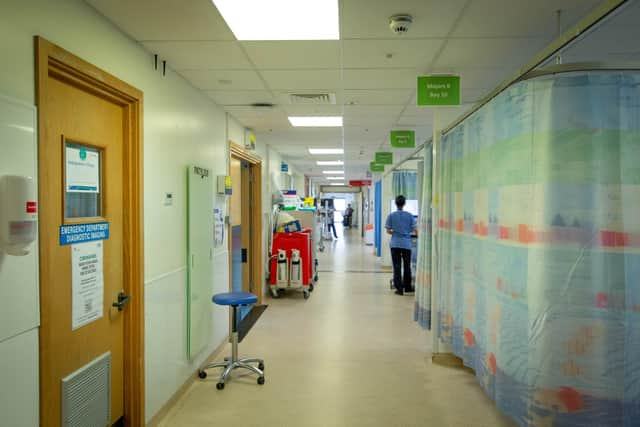Experts from University of Portsmouth and Portsmouth Hospitals University NHS Trust create new system to predict short-term survival chances for bowel cancer patients
and live on Freeview channel 276
The new algorithm, which can estimate how long a patient might spend in hospital if they’re diagnosed with bowel cancer, could also save the NHS millions of pounds.
Experts from the University of Portsmouth and the Portsmouth Hospitals University NHS Trust used artificial intelligence and data analytics to predict the length of hospital stay for bowel cancer patients, whether they will be readmitted after surgery, and their likelihood of death over a one or three-month period.
Advertisement
Hide AdAdvertisement
Hide AdThe intelligent model will allow healthcare providers to design the best patient care and prioritise resources.


Bowel cancer is one of the most common types of cancer diagnosed in the UK, with more than 42,000 people diagnosed a year.
Professor of intelligent systems, Adrian Hopgood, from the university, is one of the lead authors on the new paper.
He said: ‘It is estimated that by 2035 there will be around 2.4 million new cases of bowel cancer annually worldwide. This is a staggering figure and one that can’t be ignored.


Advertisement
Hide AdAdvertisement
Hide Ad‘This technology can give patients insight into what they’re likely to experience. They can not only be given a good indication of what their longer-term prognosis is, but also what to expect in the shorter term.
‘If a patient isn’t expecting to find themselves in hospital for two weeks and suddenly they are, that can be quite distressing. However, if they have a predicted length of stay, they have useful information to help them prepare.
‘Or indeed if a patient is given a prognosis that isn’t good or they have other illnesses, they might decide they don’t want a surgical option resulting in a long stay in hospital.’
The study used data taken from a database of over 4,000 bowel cancer patients who underwent surgery between 2003 and 2019. It looked at 47 different variables including age, weight, fitness, surgical approaches, and mortality.
Advertisement
Hide AdAdvertisement
Hide AdThe technology could be rolled out straightaway in principle, but would need to be approved for use in a clinical setting. However, Professor Hopgood is keen to work with an even bigger dataset to improve the accuracy of predictions, which is already above 80 per cent.
Professor Hopgood added: ‘If we could attract funding, we would love to get together with other bowel cancer centres so we have access to even bigger datasets. With machine learning, the simple rule is the more data the better,” he said.
‘Everyone I’ve spoken to in the health domain thinks that artificial intelligence will help them do a better job and we hope this research will do exactly that – by providing more accurate predictions, the health service can allocate the best resources to each patient and improve patient care.’
A message from the Editor, Mark Waldron
Subscribe here for unlimited access to all our coverage, including Pompey, for just 26p a day.
Comment Guidelines
National World encourages reader discussion on our stories. User feedback, insights and back-and-forth exchanges add a rich layer of context to reporting. Please review our Community Guidelines before commenting.
